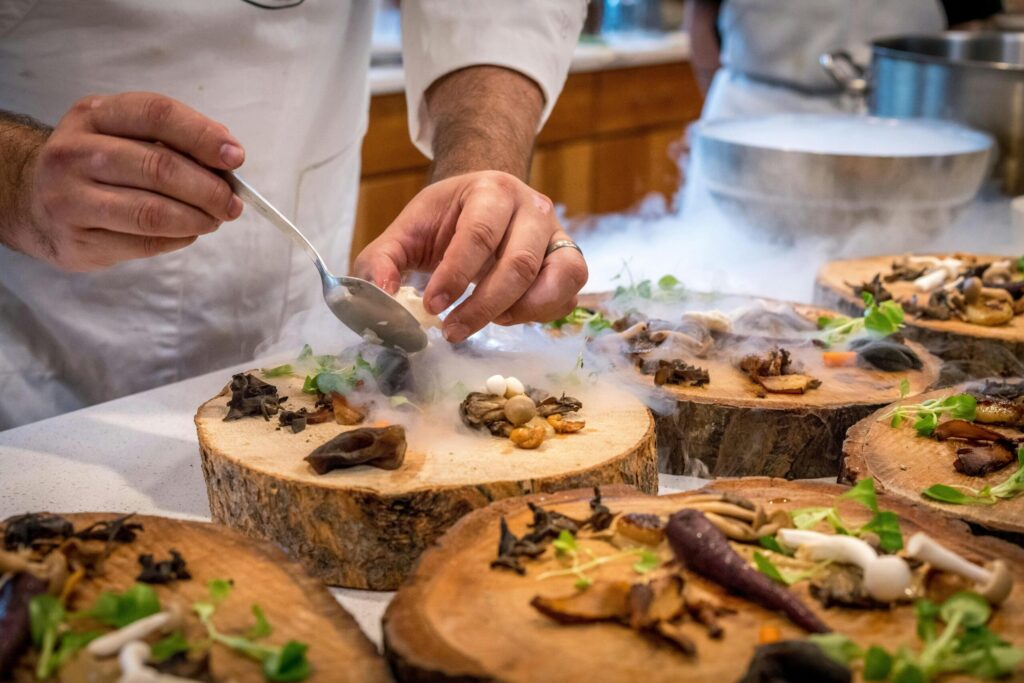Catalonia’s Culinary Stars Embrace Tradition Amid Global Gastronomic Spotlight

As Catalonia celebrates its designation as the 2025 World Region of Gastronomy, the region’s most renowned chefs are steering their kitchens away from molecular marvels and back toward the roots of their culinary heritage.
Long considered a crucible of avant-garde cuisine thanks to figures like Ferran Adrià—whose revolutionary techniques at El Bulli reshaped fine dining globally—Catalonia is now embracing a quieter, more introspective food movement. The focus: homegrown ingredients, ancient recipes, and flavors handed down through generations.
Later this month, 60 Michelin-starred chefs will launch a coordinated campaign to position Catalonia not just as a gastronomic powerhouse, but as a cultural steward of traditional Mediterranean foodways.
The End of El Bulli Imitation
“Copying El Bulli is over,” says Jordi Artal, the chef behind Barcelona’s two-Michelin-starred Cinc Sentits. “What Adrià pioneered has become a vast toolbox of techniques. Now, each of us is finding ways to apply those techniques to the dishes of our childhood.”
Rather than a backlash against modernist cooking, Artal describes the movement as a natural evolution—one that blends cutting-edge tools with centuries-old Catalan culinary tradition. At his restaurant, for instance, every ingredient is sourced from Spain, and only Spanish wines are served.
“I can’t serve a dish inspired by my great-grandmother and pair it with a Bordeaux,” he says. “There’s no yuzu on the menu, because my grandmother didn’t use yuzu.”
A Return to the Soul of Catalan Cuisine
The region’s biggest names—including the Roca brothers of El Celler de Can Roca and Carme Ruscalleda, one of Spain’s most decorated chefs—are also embracing the pivot. Alongside their flagship restaurants, many now operate more humble venues that serve updated versions of classic Catalan fare.
“Catalan cuisine has Roman, Greek, and medieval roots,” says Ruscalleda, who earned her first Michelin star in her seaside hometown of Sant Pol de Mar. “We can embrace new ideas without losing sight of who we are.”
At Fontané, the Roca brothers’ latest concept in Girona, the dishes are more rustic, the prices far below the €200-plus tasting menus of their flagship, and the objective clear: bring Catalan flavors back to everyday diners.
The Influence of Family—and the Future
For Jordi Vilà, chef of both Alkimia and its more relaxed counterpart Al Kostat del Mar, the revival is also about preserving cultural memory. “Many young chefs today don’t aspire to be Ferran Adrià. They want to cook the dishes their mothers and grandmothers made.”
Yet in Barcelona, traditional Catalan dishes have become rare. “There are 50 ramen shops, and not one serving escudella,” Vilà laments, referring to the beloved Catalan noodle stew. His recently published book—a tongue-in-cheek “manual of self-defense” for Catalan cooking—warns against the cultural dilution brought on by globalization.
Even Oriol Castro, co-founder of Disfrutar—currently ranked the best restaurant in the world and run by three El Bulli alumni—has shifted his menu. Though still experimental, it now features dishes deeply rooted in traditional Catalan cuisine, like suquet de peix and mar i muntanya.
“There’s no war between modernism and tradition,” Castro says. “We’re simply marrying creativity with heritage.”
Chefs as Cultural Guardians
This renewed emphasis on Catalan identity comes as young consumers drift toward trendier international flavors. “Young people know sushi and ceviche but not their own food,” says Ruscalleda. “The biggest threat to traditional cuisine is that people have stopped cooking at home.”
Vilà sees this as a cultural inflection point. “We’re in a transition,” he says. “The grandmothers of tomorrow won’t be in the kitchen. They’ll be out in the world. And while a chef can never replace a grandmother, maybe it’s our turn to carry that torch.”
As Catalonia looks to showcase its cuisine on the global stage, it’s not the foams or liquid nitrogen that are stealing the spotlight—it’s the stew pots and family recipes that remind diners of where they came from.
By Staff Writer, Courtesy of Forbes | June 20, 2025 | Edited for WTFwire.com
Source: The Guardian
: 284







